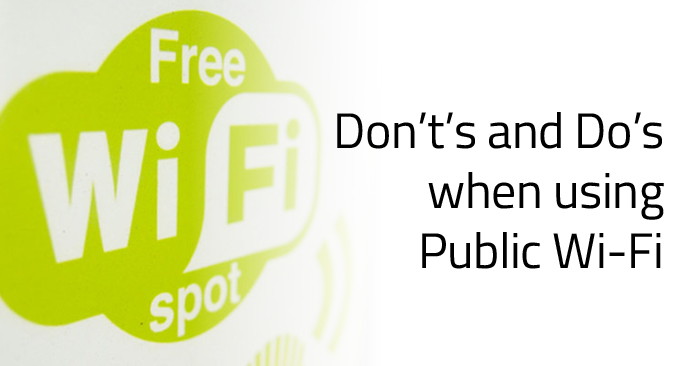
Curl up in a chair at your favorite coffee house, the aroma of premium coffee filling the air, take a few sips of your 400 calories latte, and then enter cyberspace. Little do you know that you could have a stalker. Or two. Or 3,000. Because public Wi-Fi is there for the picking for hackers. Online transmissions can be intercepted. The credit card number that you enter onto that retailer’s site can be “seen”, as well as many other infos you don’t want to disclose.
Don’t Do These at a Public Wi-Fi Site
- Never leave your spot without your device on you—not even for a moment. You may come back and still see your computer where you left it…but a thief may have installed a keylogger into it to capture your keystrokes.
- Do not e-mail messages of a sensitive or serious nature.
- When your computer begins seeking out a network to connect to…do not let it just drift to the first one it wants; see if you can choose one.
- Don’t leave on your file sharing.
- If you’re not using your wireless card, then do not leave it on.
- Don’t do banking or any other sensitive activities.
- Don’t position your device so that someone nearby can see the screen.
Yes, Do These when at a Public Wi-Fi Spot
- Look around before you settle into a nice spot.
- Sit somewhere so that your back is facing a wall.
- Assume all Wi-Fi links are suspicious—kind of like assuming all drivers are drunk whenever you go out driving. A wireless link may have been set up by a hacker.
- See if you can confirm that a given Wi-Fi link is legitimate.
- Assume that if the connection name is similar to the Wi-Fi spot, that this could mean that the hacker was clever. Inquire of the manager of the coffee shop, hotel, etc., for information about their Wi-Fi access point.
- You should consider using your cell phone for sensitive activities such as online shopping.
- But cell phone or not, see if you could avoid visiting sites that can make it easier for hackers to nab your data—sites such as banking, social media and any site where your credit card information is stored.
To ensure the security and privacy of your connection on public Wi-Fi, I recommend using a VPN. This stands for virtual private network. What a VPN does is create an impervious tunnel through which your data travels. Hackers cannot penetrate this tunnel, nor can they “see” through it. Your data is safe. The tunnel encrypts all of your banking and other sensitive transactions, as well as sensitive e-mail communications, plus downloads, you name it. With a virtual private network such as Hotspot Shield, you will not have to worry about a thief or snoop intercepting your transmissions.


